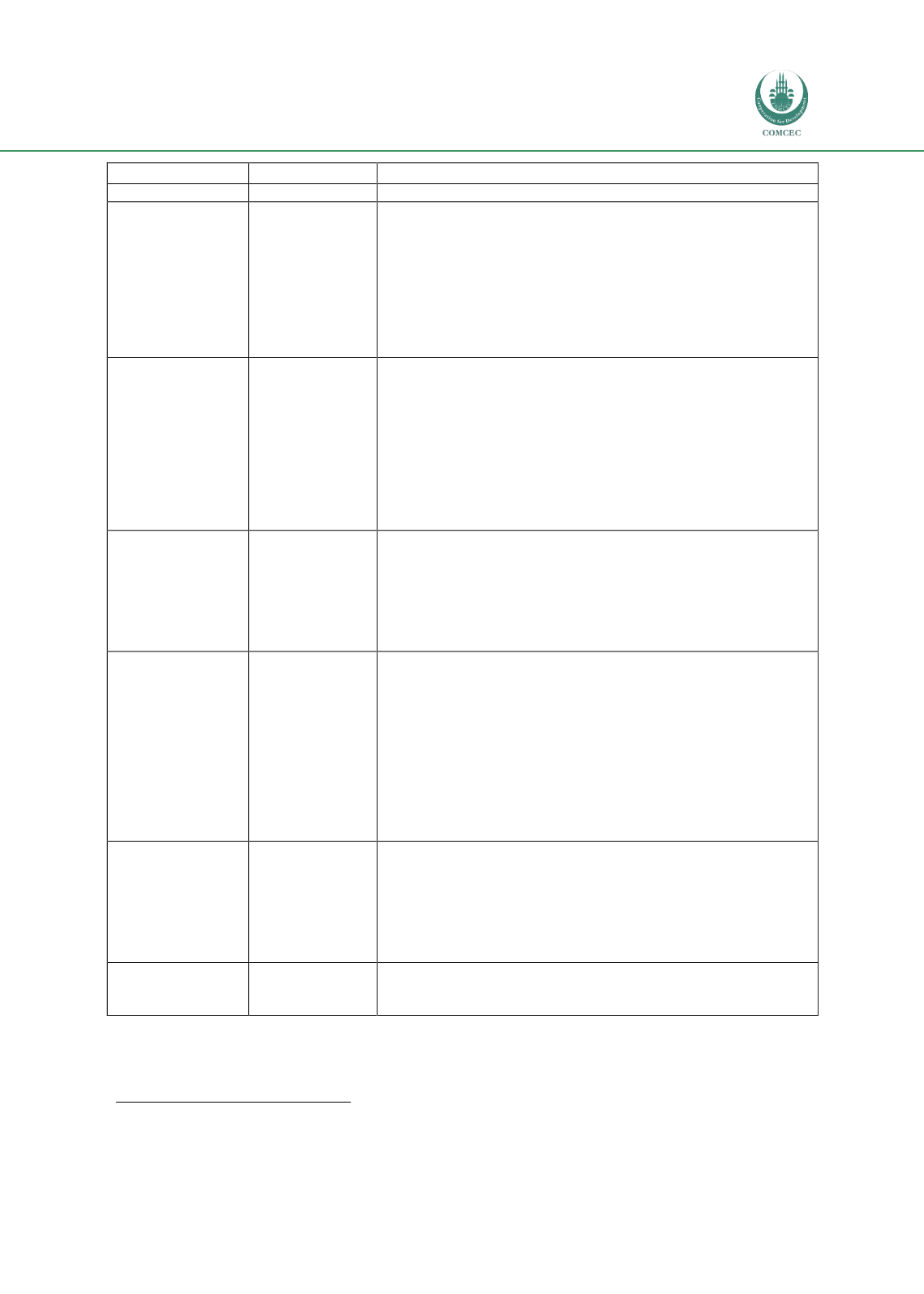

Improving Agricultural Market Performance:
Creation and Development of Market Institutions
105
Classification
Institution
Description
anticipate through timing of market control.
Commodity
Market
Regulation
Authority
Agency for Urban
Rehabilitation
and Renovation
The Agency for Urban Rehabilitation and Renovation (ARRU) is a
public company, which has been created in 1981 and is supervised
by the Ministry of Equipment but receives assignments from
multiple Ministries. ARRU has the mandate to modernize Tunisia’s
distribution circuits by updating the “hardware” of Tunisia’s
agricultural market system, including wholesale markets, livestock
markets, and abattoirs. ARRU’s project portfolio consists of 58
projects (26 wholesale markets, 21 livestock markets, and 11
abattoirs) with a combined value of nearly US$12 million.
Marketing Board
National
Oil
Board
The National Oil Board (ONH), which is 100% owned by the state,
is concerned with exporting olive oil though the ONH does not
enjoy full monopoly power. More than 270 private sector approved
olive oil exporters complement the ONH on the olive oil market.
The ONH, however, enjoys the right to import oils duty-free and
tax-free. The ONH does not buy olive oil from private producers at
a price fixed but can negotiate this price freely, thereby
guaranteeing a certain minimum price. Prices are published by the
National Export Price Observatory in order to ensure transparency
and avoid low bargain prices.
Marketing Board
Cereals Board
Tunisia’s national Cereals Board (OC), which is 100% owned by the
state and focuses on import.
196
It has the mandate to intervene in
the market by buying common wheat and durum at prices set by
the Government while selling domestic and imported cereals at
fixed prices to processing facilities. The OC lost its monopoly
position with regards to importing common wheat and durum in
2016.
State-Owned
Economic
Enterprise
Tunisian
Sugar
Company
The Tunisian Sugar Company (STS), a state-owned enterprise,
operates under the authority of the Ministry of Industry, and
refines imported sugar. STS has been created in 1961 with the key
objective to satisfy Tunisia’s needs for sugar and sugar refinery.
STS operates a sugar refinery with a size of 55 hectares and
produces white crystalized sugar and sugar molasses. Since 2009,
STS has been subcontracted by the OCT to refine (imported) sugar,
for which STS receives a refining premium (determined by the
amount of raw sugar received). STS imported raw sugar itself prior
to 2009. STS operates its refinery facility in Béja, sugar warehouse
in Bizerte, and a commercial office in Tunis.
State-Owned
Economic
Enterprise
Tunisian
Trade
Board
The Tunisian Trade Board (OCT) complements the STS as it
operates as a state-owned enterprise, which has the mandate to
import refined sugar as well as sugar which still needs to be
refined, based on actual market needs, thereby taking into
consideration the quantities produced by the STS. The OCT is
sometimes requested to import milk or dairy products on behalf of
the Ministry of Commerce and Crafts.
197
State-Owned
Economic
Enterprise
Ellouhoum
Company
The Ellouhoum Company, which is under supervision of the
Ministry of Commerce and Crafts, enjoys the monopoly on
importing meat.
198
Source: Investment Consulting Associates – ICA (2017)
196
WTO (2016),
Tunisia Trade Policy Review Report by the Secretariat
, World Trade Organization: Geneva.
197
WTO (2016),
Tunisia Trade Policy Review Report by the Secretariat
, World Trade Organization: Geneva.
198
Ibid


















